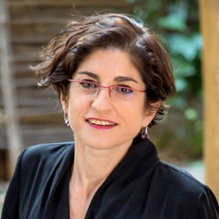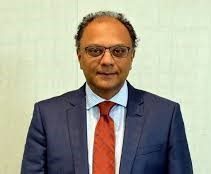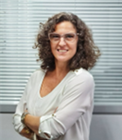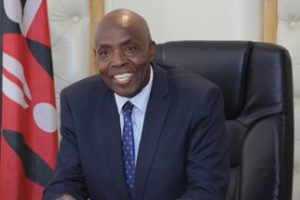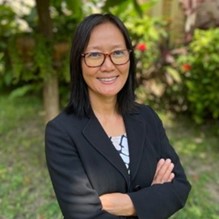Session 1: Opening Ceremony
Hon. Claudette IRERE, Minister of State for Education, Rwanda
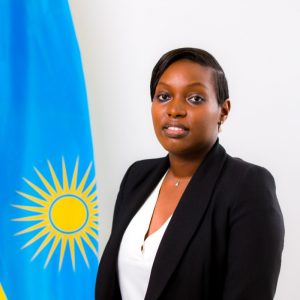
Hon. Claudette IRERE was appointed Minister of State for Education in August 2023. Prior to her current position, she served as Minister of State in charge of Technical and Vocational Education and Training (TVET) and ICT integration in teaching and learning since February 2020. She also served as Permanent Secretary in the Ministry of ICT and Innovation.
Hon. IRERE, who co-founded FabLab Rwanda and served as its general manager, previously served as project manager at the Private Sector Federation (PSF), ICT Chamber, General-Manager at kLab and CR Manager at Rwanda Online (Current Irembo Ltd). Hon. Claudette IRERE acquired her master’s degree in computer engineering from Oklahoma Christian University in 2013 a year after graduating from the former National University of Rwanda with a bachelor’s in computer science in 2012.
Dr Muna Salih Meky, Education Practice Manager, Eastern and Southern Africa, World Bank

Muna Meky is a practice manager for Education Global Practice, East and Southern Africa, at the World Bank. A seasoned practitioner in education and development, she has held significant roles across regions including Kenya, Nigeria, India, and Malawi during their tenure with the World Bank. As a Practice Muna spearheaded initiatives to foster regional dialogue for Africa-driven education solutions. Her contributions in Nigeria as a Program Leader facilitated innovative approaches to improving human capital outcomes, including aligning vocational skills with industry needs and coordinating programs for maximum impact. In India, Muna led transformative projects focusing on skills development and second-chance education, showcasing a commitment to equity and quality in education.
H.E. Dr William Kipchirchir Samoei Arap Ruto CGH
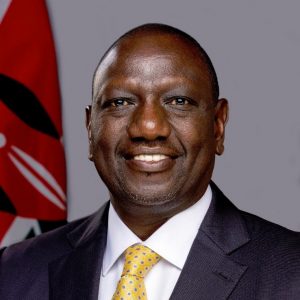
President of the Republic of Kenya and Commander-in-Chief of the Defence Forces. Before ascending to be President in 2022, Dr Ruto served as the Deputy President of the Republic of Kenya from April 3, 2013, to September 12, 2022. Dr Ruto have previously served in various Ministerial posts, including as Minister of Higher Education and Minister of Agriculture. He studied Botany and Zoology at University of Nairobi and has a Master of Science Degree in Plant Ecology and a PhD in Plant Ecology from the same university. Dr Ruto is married to Rachel Chebet Ruto and they have seven children.
Session 2: PASET (Past, Present and Future)
Prof. Goolam Mohamedbhai, Chair, PASET Consultative Advisory Group
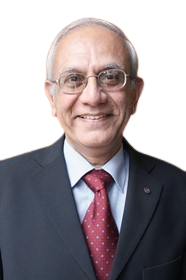
Prof Goolam Mohamedbhai did his undergraduate and postgraduate studies at the University of Manchester, UK and his postdoctoral research at the University of California, Berkeley. He served as the Vice-Chancellor of the University of Mauritius from 1995 to 2005.
He was Secretary-General of the Association of African Universities, and President of the International Association of Universities. He has also served on the Council of the Association of Commonwealth Universities and was a member of the Governing Council of the United Nations University, Tokyo, Japan. Prof Mohamedbhai now operates as an independent consultant in higher education, with special interest in Africa.
Currently, he is a member of the Board of the University World News (Africa); the Advisory Council of the US Council for Higher Education Accreditation (CHEA) International Quality Group (CIQG); and the Advisory Board of the Centre for International Higher Education, Boston College, USA. He also chairs the Regional Steering Committee of the World Bank’s Project on African Centres of Excellence for Eastern and Southern Africa, as well as the Consultative Advisory Group of the World Bank’s Partnership for Applied Sciences, Engineering and Technology (PASET) in Africa project since its inception in 2013.
Prof. Aminata Sall Diallo, Executive Director of PASET Executive Board
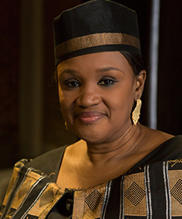
Prof. Aminata Sall Diallo stands as a beacon of scientific excellence and advocacy for education in Sub-Saharan Africa. As the Executive Director of the PASET Executive Board and a distinguished Professor of Physiology at the University Cheikh Anta Diop in Dakar, she embodies a commitment to advancing both scientific research and educational initiatives across the continent.
With an illustrious career spanning decade, Prof. Diallo has emerged as a leading voice in the fight against hepatitis, contributing significantly to both research and policy implementation. Her pivotal role in establishing the National Program against hepatitis in Senegal not only underscores her dedication to public health but also positions Senegal as a pioneering nation in combatting this disease. Through groundbreaking research, Prof. Diallo has revolutionized the prevention of hepatitis B in Africa, unveiling critical insights into mother-to-child transmission that have shaped vaccination strategies and transformed disease control efforts.
Beyond her scientific achievements, Prof. Diallo has garnered international recognition for her contributions to academia and public service. Elected as a member of the French Academy in 2015, she has been honored as a Knight of the National Order of Merit of France and a Knight of the National Order of the Lion of Senegal, further exemplifying her distinguished career trajectory. Additionally, she has been recognized for her leadership and advocacy as an alumna of the United States International Leadership Program.
At the forefront of national and international initiatives, Prof. Diallo serves as the general administrator of the Senegalese program for youth entrepreneurship and as the national coordinator of the program of struggle against hepatitis. Her multifaceted roles extend to her involvement in the alignment of higher education with economic needs in Senegal’s emerging plan, showcasing her commitment to fostering holistic development and innovation within her home country.
Prof. Diallo’s influence transcends borders, as evidenced by her membership in the International Network of Government Science Advisers (INGSA), where she represents Africa and serves as a notable advocate for evidence-based policymaking. Her tireless efforts and remarkable achievements were recently highlighted in the publication “Earth, Oceans and Skies: Insights from selected, outstanding African women scientists,” published by the United Nations Economic Commission for Africa (UNECA), reaffirming her status as a trailblazer in the scientific community.
As a scientist, educator, and advocate, Prof. Aminata Sall Diallo continues to inspire and empower future generations, leaving an indelible mark on the landscape of scientific research and education in Africa and beyond. Her unwavering dedication to advancing knowledge and improving lives serves as a testament to her enduring legacy and impact on society.
Dr. Abdou Tenkouano, Director General, International Centre of Insect Physiology and Ecology
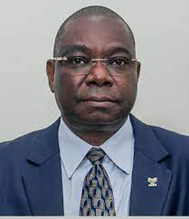
Dr. Abdou Tenkouano is an eminent authority in agricultural research and development, with a career spanning close to three decades, dedicated to advancing scientific knowledge and agricultural innovation. He assumed the role of Director General of the International Centre for Insect Physiology and Ecology (www.icipe.org), in January 2024.
Previously, Dr. Tenkouano held leadership positions in agricultural research and development across Africa. From 2016 to 2023, he was the Executive Director of the West and Central African Council for Agricultural Research and Development (CORAF/WECARD), based in Dakar, Senegal.
He joined the Council from the World Vegetable Center (WorldVeg, previously the Asian Vegetable Research and Development Center – AVRDC), where he served for eight years, first from 2008 – 2013, as the Director, Regional Center for Africa, based in Arusha, Tanzania; and then, from 2014 – 2016, as Regional Director, West and Central Africa, based in Bamako, Mali.
Dr. Tenkouano’s illustrious career also includes a 12-year stint (1996 – 2008), and various positions at the International Institute of Tropical Agriculture (IITA), working on genetics, breeding and improvement of plantain and banana, cassava and yams. From 1994 – 1996, he was the Coordinator, West and Central Africa Sorghum Research Network, International Crop Research Institute for the Semi-Arid Tropics (ICRISAT), in Bamako, Mali. Actively engaged within the global scientific community, Dr. Tenkouano has made substantial contributions to agricultural research through his extensive publication record, professional services, and memberships in various regional and international committees. His dedication to research excellence has been recognized with prestigious awards, including the CGIAR Science Award for Outstanding Partnership in 2009.
Dr. Tenkouano holds a Ph.D. in Genetics and an M.Sc. in Plant Breeding from Texas A&M University, USA, as well as a diplôme d’ingénieur agronome from the University of Ouagadougou, Burkina Faso. His research endeavors have encompassed genetics, breeding, biotechnology, pathology, agronomy, and postharvest strategies, contributing to the advancement of agricultural science and the sustainable development of various crops vital for food security in Africa and beyond.
With his visionary leadership, extensive expertise, and unwavering dedication to agricultural research and development, Dr. Abdou Tenkouano continues to inspire positive change and innovation within the agricultural sector, leaving a lasting impact on the livelihoods of millions across the globe.
Eng. Mike Hughes, PASET EB Member from Rwanda
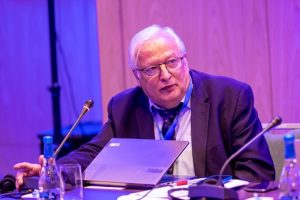
Mr. Mike Hughes is a seasoned professional with a diverse background encompassing science, technology, and innovation policy, as well as extensive experience in the power industry and telecommunications sector. As an Advisor in Science and Technology to the Government of Rwanda, he has played a pivotal role in shaping national policies and strategies for over 19 years.
During his tenure at the Rwanda President’s Office from 2006 to 2009, Mr. Hughes spearheaded the development and implementation of Rwanda’s Science, Technology, and Innovation National Policy and Strategy, contributing significantly to the country’s technological advancement and economic development.
With over 30 years of experience in the power industry and telecommunications, Mr. Hughes brings a wealth of expertise to his role. His professional journey has taken him across various countries, including the United Kingdom and Zambia. In the UK, he served as a manager for the National Grid Company, overseeing the construction of a National Fibre Optic Network, while in Zambia, he held leadership positions in telecommunications and electro-technical divisions of the power company.
Mr. Hughes is highly skilled in multiple areas, including business development, financial management, team management, quality systems, operations, maintenance, project development, programme management, construction, electrical engineering, and telecommunications. His versatile skill set and extensive experience make him a valuable asset in driving innovation and technological progress.
Educationally, Mr. Hughes holds a Bachelor of Science (Hons) degree and is recognized as a Chartered Engineer (C.ENG) and a Member of the Institution of Engineering and Technology (IET). His commitment to professional excellence and dedication to advancing science, technology, and innovation have earned him recognition and respect within the global community.
As an accomplished leader and expert in his field, Mr. Mike Hughes continues to contribute significantly to Rwanda’s technological landscape, driving progress and innovation to propel the country towards a prosperous future.
Dr. Miriam Altman, Member of PASET Consultative Advisory Group
Dr. Miriam Altman stands as a distinguished authority in the realms of economics, business strategy, and social activism, renowned for her profound contributions to economic development and transformative leadership. She is Director of strategy consultancy Altman Advisory and serves as a professor of 4IR (Fourth Industrial Revolution) Practice in the School of Economics at the University of Johannesburg. Her current work focuses on infrastructure development in areas of energy, transport, telecoms and water security, as well as infrastructure state-owned entity reform.
With a career spanning decade, Prof. Altman’s professional journey has been characterized by a relentless pursuit of scalable, high-impact solutions to economic development challenges. As a strategist, economist, businessperson, and social activist, she has played pivotal leadership roles driving significant transformation across various sectors.
Prof. Altman was previously Commissioner in the National Planning Commission in the South African Presidency and Executive Director at the Human Sciences Research Council leading its work on the economy, poverty reduction and employment. Her involvement in these capacities underscores her commitment to shaping national policies and strategies aimed at fostering sustainable economic growth and development.
As Chief of Strategy, Prof. Altman played a pivotal role in orchestrating the turnaround at Telkom, a telecommunications giant in South Africa. Her expertise in digital transformation continues to be instrumental in navigating the complexities of the rapidly evolving digital landscape.
Throughout her career, Prof. Altman has convened top leaders to engage in productive dialogue aimed at addressing the most pressing economic challenges facing societies. Her ability to facilitate collaborative efforts and drive meaningful change has earned her widespread recognition and respect in academic, business, and policymaking circles.
Prof. Altman’s academic credentials include a Ph.D. in Economics from The University of Manchester, an M. Phil in Development Economics, and a B.A. in Economics from McGill University. Her scholarly pursuits and practical insights continue to inform and inspire generations of economists, policymakers, and business leaders, positioning her as a trailblazer in the field of economic development.
As a visionary leader, strategist, and economist, Prof. Miriam Altman remains steadfast in her commitment to advancing economic prosperity and social equity, leaving an indelible mark on the global economic landscape
Session 3: High level panel on strengthening PASET as a partnership to leverage TVET in the Knowledge and Skills Ecosystem for Africa’s Industrialization.
Prof Winston Oluwole “Wole” Soboyejo, President, SUNY Polytechnique Institute, USA
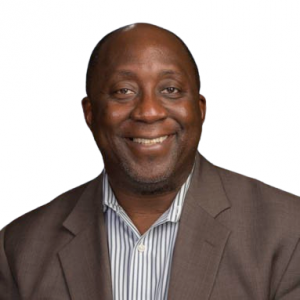
Dr. Winston Soboyejo’s research focuses on materials for health, energy, and global development. He joined SUNY Poly from Worcester Polytechnic Institute (WPI) after serving as Interim President (2022-2023), Provost (2018-2022) and Dean of Engineering (2016-2018) at WPI. Dr. Soboyejo has also held faculty positions at Princeton University (1999-2016), MIT (1997-1998) and The Ohio State University (1992-1999). Notably, he served as President and Provost of the African University of Science and Technology (AUST) in Abuja, Nigeria, highlighting his commitment to African STEM outreach.
With over 400 peer-reviewed papers, Soboyejo was elected to the U.S. National Academy of Engineering in 2021. He is also a member of the World Academy of Science, the African Academy of Science, the Nigerian Academy of Science and the Nigerian Academy of Engineering. He has also served on the Scientific Advisory Board of the U.N. Secretary General (2014-2017).
A King’s College London graduate with a PhD from the University of Cambridge, Dr. Soboyejo’s illustrious career reflects his dedication to academic excellence, international collaboration, and advancing STEM fields, particularly within Africa.
Moderator: Dr. George Afeti, Vice Chair of PASET Consultative Advisory Group
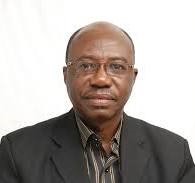
Dr Afeti is a mechanical engineer, educated at the University of Paris and the Kwame Nkrumah University of Science and Technology in Ghana. He is a former Secretary General of the Commonwealth Association of Polytechnics in Africa and a former Principal of Ho Polytechnic. Dr. Afeti has taught at universities and polytechnics in France, Nigeria and Ghana and served on many national and international education committees and boards, including the National Council for Tertiary Education and the National Accreditation Board of Ghana, and the Council of the Ghana Institution of Engineers. He is an education consultant to the World Bank, the African Development Bank, the Association for the Development of Education in Africa (ADEA) and UNESCO. Dr. Afeti has written and published widely on technical and vocational skills development and differentiation and articulation within the higher education systems of Africa.
Prof. Aly Savadogo, Director General for Higher Education- Ministry of Higher Education, Scientific Research, and Innovation- Burkina Faso
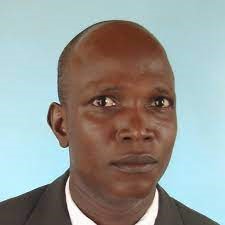
Aly Savadogo currently works at the Département de Biochimie et Microbiologie, University of Ouagadougou. Aly does research in Biotechnology and Microbiology. Their current project is ‘Production of high added value biomolecules, enzymes and food protein.’; Lactic acid bacteria in fermented food, bioactive compounds.
Mr. Yamal Matabudul, Chief Executive Officer, Polytechnics Mauritius
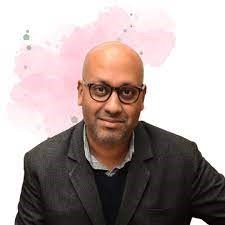
Yamal Matabudul is the founding Chief Executive Officer of Polytechnics Mauritius Ltd, a tertiary education institution that focuses on upper TVET and skills-based courses and Chairman of the newly created Institute of Technical Education and Technology (ITET), under the aegis of the Ministry of Education, Tertiary Education, Science and Technology. He cumulates more than 22 years of work experience in the education and training sector. He started his career as a lead facilitator for a tutoring company which he co-founded in Montreal. Since then, he has been part of senior management at various private educational institutions including Strategy and Training Manager at Business Mauritius (previously MEF), Managing Director at TetraNergy Mauritius (representative of the Conservatoire National des Arts et Métiers, l’Ile Maurice), Executive Director of Business Operations at Oceana International Business School and more recently General Manager of Education at Medine Education Village.
Yamal has also acted as Education lead for GroFin Africa – a private equity fund that invests in SMEs across Africa, Project Manager for the Government of Mauritius and Consultant for The World Bank, Save the Children and African Development Bank.
Yamal MATABUDUL CEO Polytechnics Mauritius Learning 5.0, Upskilling 5.0 INDUSTRY 5.0/SDG IMPLEMENTATION VIA HUMAN TECHNOLOGY Yamal holds a Master’s degree in Higher Education from the University of Oxford, on a Chevening Scholarship, where he completed a thesis titled “An education hub in development? The difficult journey of private higher education institutions in the education hub in Mauritius”. He also completed a Master’s in Public Policy and Management from the School of Oriental and African Studies, a Graduate Diploma in International Business (Summa Cum Laude) and a BSc in Physics and Finance from McGill University.
Mr Anthony Mwangi, Chief Executive Officer, Kenya Association of Manufacturers
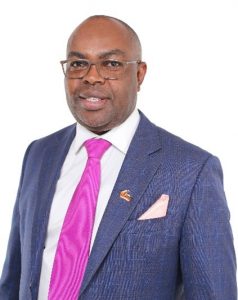
Anthony is the Chief Executive, Kenya Association of Manufacturers (KAM). He is an accomplished professional with over 20 years of experience in; Government and Regulatory Affairs, Public Policy, Public Affairs, Communication, Stakeholder Management and Business Development, cutting across various industries, including Transportation, ICT, Aviation, and Oil & Gas. Before joining KAM in September 2022, he had worked at Bolt since November 2020, as the Head of Public Policy for East Africa & the Horn. Previously, he was the Director of Government, Public Affairs & Communication for Tullow Kenya till March 2020.
He has also served as the Leader of IBM Government & Regulatory Affairs for East Africa from 2012 – 2015. While at IBM, he initiated transformative government partnerships, including the Ease of Doing Business transformation for Kenya. Through this project, IBM Research Lab helped Kenya improve in the World Bank’s Ease of Doing Business ranking globally, from 136 in 2015 to 56 in 2019.
Before IBM, Anthony worked for Kenya Airways as the Head of Government & Industry Affairs for seven years until November 2012. He has also held senior positions in various organizations, including Samsung Electronics and MFI Office Solutions.
Anthony graduated with a master’s degree in public policy and management at Strathmore Business School in 2018 and holds a Certificate of Public Policy from New York University (NYU). He is an alumnus of the University of Nairobi and holds other certifications from local and international institutions.
Dr. Cosam Chawanga Joseph, Regional Project Coordinator of EASTRIP
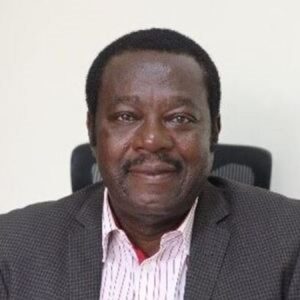
Dr. Joseph has close to 25 years experience in management of higher education, research, quality assurance, qualifications framework, strategic planning, project management, and process improvements in driving innovation and game changing strategies in Academia and Regional Organisations. He blends passion for intelligent sustainability innovation and envision for change. He is a savvy relationship builder, forging alliance with stakeholders and development partners with proven ability to design and execute projects, and data management for processes improvement and decision making.
He is endowed with strong leadership skills and ability to produce tangible results aligned to the vision and strategic direction of an organisation, with ability to analyse problems and propose viable solutions and outcomes. He is tooled with strong negotiation and interpersonal skills. Ability to motivate and drive performance of a team. He is an effective communicator who can comprehensively present complex ideas with colleagues and peers, scrupulous and thorough analyst with excellent attention to details when undertaking tasks.
He is currently the Regional Project Coordinator for EASTRIP Project and before joining EASTRIP, he was the Head of the Quality Assurance and Qualifications Framework Unit at IUCEA, from 2008 to 2019.
At continental level, He was a member of a Technical Working Group of Tuning Africa-I&2, from 2011 – 2015, which was funded by the European Union, under the EU-Africa Strategy. The focus of the initiative was on harmonisation of STEM related academic programmes in Africa, using the tuning concept. Prior to the development of ASG-QA under HAQAA initiative, I participated in all continental technical meetings/forums on the development of the EU funded Pan African Quality Assurance and Accreditation Framework (PAQAF).
Furthermore, He also participated at continental level in the development of EU-Africa Strategy in the development of African Continental Qualifications Framework (ACQF). On several occasions, he also represented IUCEA in the ACQF Advisory Boad meetings. Furthermore, at continental level, he also represented IUCEA in the development of the UNESCO-Addis Conventions for Mutual Recognitions which was adopted in Addis Ababa Ethiopia on 12th December 2014.
Prior to joining IUCEA, he worked at the University of Dar es Salaam as an academic staff, where he rose through various academic ranks to Senior Lecturer in chemistry. He holds a B.Sc. (Ed) and M.Sc. (Chemistry) from the University of Dar es Salaam and a Ph.D. in organic chemistry with specialization in synthetic carbohydrate and sugar chemistry, University of Nijmegen, now renamed Radboud University of Nijmegen, the Netherlands.
While working at UDSM, in addition to academic responsibilities of teaching research and outreach services, he also served in various leadership and administrative positions such as Head of Chemistry Department, Associate Dean, Faculty of Science, Main Campus and later as Dean of the Faculty of Science, Dar es Salaam University College of Education (DUCE), the position he held until he joined IUCEA.
Furthermore, he carried out a number of research projects in chemistry and related fields through which he supervised 10 Ph.D. and 14 M.Sc. students, therefrom published original scientific publications amounting to over 35 papers in chemistry in peer reviewed journals. His experience on project management at UDSM include over 15 projects that were funded by different funding agencies like SIDA-SAREC of Sweden, NORAD, WHO/TDR/MIM, International Program for Chemical Sciences (IPCS), International Foundation for Science (IFS), Third World Academy of Science (TWAS), Rockefeller Foundation, Carnegie Cooperation, National Institute of Health (NIH) of US, DAAD of Germany, IDRC of Canada, VLIR of Belgium, SIDA of Sweden and the World Bank.
Session 4.1: Emerging technologies of the 4IR as opportunities to address Africa’s industrialization challenges.
Moderator: Dr. Moses Osiru, Senior Education Specialist, World Bank
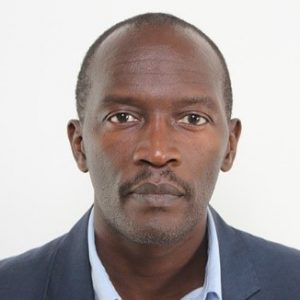
Dr Moses Osiru is a Senior Education Specialist at the World Bank based in the Uganda Country office. He holds a Ph.D. in Agriculture (Plant Pathology) and an MSc (Plant Breeding/ Pathology). He has over 20 years of experience in the agricultural and higher education sectors, including close to ten years within the Consultative Group on International Agricultural Research (CGIAR).
Dr. Moses was the first Manager of the Regional Coordination Unit of the Regional Scholarship and Innovation Fund of the Partnership for Skills in Applied Sciences, Engineering and Technology based at icipe (International Center for Insect Physiology and Ecology), Nairobi, Kenya, whose aim is to double the number of African PhD As a Regional Pathologist with the International Crops Research Institute for the Semi-Arid Tropics (ICRISAT), Dr. Moses supported smallholder farmers to improve groundnut production and marketing, including by mitigating aflatoxin contamination in groundnut in Burkina Faso, Niger, Nigeria, Senegal, and Ghana (based in Bamako, Mali) and in Eastern and Southern Africa (based in Lilongwe, Malawi). While working at the Ministry of Agriculture (PMA Secretariat, NARS Secretariat) in Uganda, Dr. Moses facilitated the reviewing and reforming of Uganda’s agricultural research, leading to the new Uganda Agricultural Research Policy in 2004.
He also led the development of ECOWAS’s Strategy and Action Plan for the Control of aflatoxins in West and Central Africa and a needs assessment for African agricultural research and training institutions to enhance collaboration with Brazil.
Dr. Kamau Gachigi, Founding Executive Director of Gearbox Pan African Networks
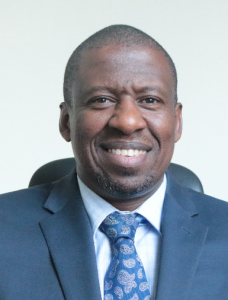
A hardware accelerator that provides members with access to modern machines for prototyping and low volume manufacture including electronics PCB fabrication. The center represents a unique window into Industry 4.0 capabilities in Africa.
He recently founded Machine Africa Network of Industries (aka MachineAni) which aims at formalizing manufacturing in the informal sector. Gearbox trains youth on manufacturing and engages directly with informal sector artisans to formalize their skills and link them upstream to machines made by Kenyan engineers for micro-industrial production, and downstream (through MachineANI) to market linkages & opportunities.
He also co-founded Gearbox Europlacer, an electronics (printed circuit board assembly) contract manufacturing firm. A JV with a global leader in manufacturing surface mount technology (SMT) equipment, Europlacer.
Dr. Kamau served a 3-year term as a member of the Global Council on the Future of Production under the World Economic Forum, and additionally as a member of the Consultative Advisory Group for the Partnership for Skills in the Applied Sciences, Engineering and Technology (PASET) between African Governments, with support from the World Bank.
Kamau was appointed to Chair the Board of the National Industrial Training Authority (NITA), a semi-autonomous government authority and until recently also sat on the Board of the Numerical Machining Complex, a Kenyan State Corporation. He previously founded the Fab Lab at the University of Nairobi and another in a low-income area in Nairobi.
He worked in Japan for TDK in R&D for over two years after earning his doctorate, and taught engineering at the University of Nairobi for 14 years. He holds a Ph.D. in Solid State Science from the Pennsylvania State University (USA), and is a holder of a US patent.
Dr. Stephane Nwolley Jnr, Founder and CEO, Npontu Technologies Ltd, Ghana
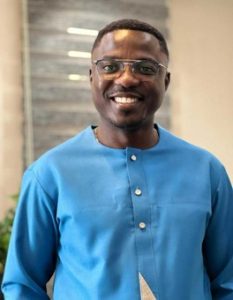
A Global Technology Leader with Impactful Achievements who brings extensive experience in spearheading digital transformation initiatives across diverse sectors. His proven ability to craft business strategies and deliver end-to-end digital transformation journeys and AI solutions has led high-performing, globally distributed teams to success. In the realm of International Projects and Innovation, He has led and delivered multiple World Bank projects in the educational sector and local government, leveraging advanced analytics and IoT technologies. Additionally, recognized as an expert in international trade, he has contributed valuable insights at the World Economic Forum on AgriTech’s role in food security and empowering MSMEs through technology.
Demonstrating expertise in building and leading diverse, cross functional teams spanning research, software development, and business units, he has successfully spearheaded business-critical analytics and IoT initiatives across various domains (e.g., Insurance, Banking, Agriculture, Healthcare) with budget efficiency. Moreover, he has identified and enabled new revenue streams for services-based organizations, fostering sustainable growth, and led the development of digital transformation solutions and AI technologies with tangible business applications, driving measurable impact.
Beyond his professional endeavours, he has a Passion for Knowledge Sharing, serving as an adjunct lecturer at Ashesi University with 5+ years of experience in higher education and professional settings. In this role, he lectures on core courses such as software engineering, system analysis and design, security, and database infrastructure. Fluent in both English and French, he facilitates effective communication across borders.
Dr. Kevit Desai, Co-Chair of the Agricultural Technology Innovation Center at KATIC
The Co-Chair at Kantaria Agricultural Technology and Innovation Centre (KATIC), a private sector driven hub meant to bridge the gap between the industry, academia and farming communities through climate friendly solutions for agricultural transformation. Focus areas: Technology transfer, extension, skills, innovations, and research. Formerly served as the Principal Secretary (PS) in the State Department of East Africa Community (EAC) in the Ministry of East Africa Community and Regional Development and State Department of Vocational and Technical Education (TVET) in the Ministry of Education, Science and Technology of Kenya. With prior experience as managing director of Centurion Systems Kenya Limited specializing in industrial automation and control systems, Desai holds a PhD in Robotics Systems Engineering from Shibaura Institute of Technology (Japan) and Bachelor of Science in Computer Engineering from University of North London.[4] Desai has also served as an Industrial Automation Development Engineer at Nippon ABS Ltd
Alain Ndayishimiye, Artificial Intelligence and Machine Learning Lead, Centre for the 4th Industrial Revolution, Rwanda
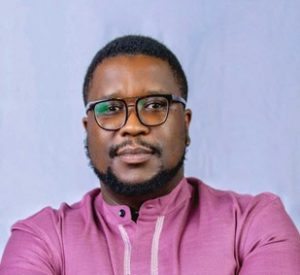
Alain Ndayishimiye is the Project Lead for Artificial Intelligence and Machine Learning at The Centre for AI Policy and Innovation (C4IR – Rwanda), where he spearheads the development, testing, and deployment of governance protocols and policy frameworks to foster AI adoption and mitigate its potential risks. Prior to this, Alain was a successful entrepreneur, founding several IT startups with a focus on leveraging Machine Learning and Blockchain technologies.
He earned a Master of Science in Machine Learning, with a specialization in data mining, from the University of Illinois at Urbana-Champaign, and a Bachelor of Science in Computer Science from Buena Vista University in Storm Lake, Iowa. Demonstrating his profound expertise, Alain serves as a board member of the Rwanda Social Security Board (RSSB), actively participating in the board’s IT modernization initiatives.
Session 4.2: Country experiences in digital skills training linked to the future of work and industrialisation.
Moderator: Dr. Edwin Tarno, Chief Executive Officer, Kenya School of TVET- Kenya
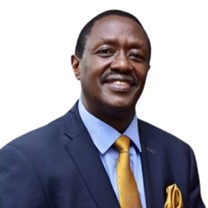
Dr. Edwin Tarno is a distinguished figure in the field of TVET in Kenya, with a career spanning over 36 years in the subsector having risen through the ranks from a trainer to the current position. He is the Chief Executive Officer of the Kenya School of TVET, the premier institution of technical trainer education, where he has played a crucial role in transforming it into a Centre of Excellence in technical trainer education in Kenya and for the region. He previously served as the Chief Principal of the Rift Technical Training Institute (RVTTI) in Eldoret where he steered the institution to be a Centre of Excellence in TVET for the East Africa Community and a UNESCO/UNEVOC network member and a leading institution in championing greening of TVET.
Dr. Tarno has received distinguished awards that include the Head of State Commendation Award (HSC) by H.E, Hon. President Mwai Kibaki in 2010, in acknowledgment of his distinguished service in technical education. Further, he was awarded Fellow of the Environment (FEnv) by the Society for Environmental Toxicology and Pollution Mitigation (SETPOM) at the University of Lagos, Nigeria, in 2018 in recognition of his commitment to addressing environmental challenges and promoting sustainable practices in TVET. He also received the Distinguished Service Award from the Commonwealth Association of Technical Universities and Polytechnics in Africa (CAPA). Dr. Tarno has served on several boards and councils including the African Union panel of TVET experts where he served in the advisory council. He also served as the National Chairperson of the Kenya Association of Technical Training Institutions (KATTI) from 2011 to 2015. From the year 2014 to 2019, he served as a board member of the Kenya Universities and Colleges Central Placement Service (KUCCPS).
Dr. Tarno holds a Ph.D. in Organizational Development and Transformation (ODT) from CEBU Doctors University in Philipines, an MBA in Entrepreneurship and Marketing (Double Major) from Moi University, and many professional and academic qualifications. He is widely published and a co-author of the book Emerging Trends and Challenges in TVET in Sub-Saharan Africa. He is also the founding editor of the Kenya Journal of TVET (KJ-TVET) and the AfriTVET Journal, the two peer-reviewed authoritative journals that publish widely in TVET.
Hon. Claudette IRERE, Minister of State for Education, Rwanda

Hon. Claudette IRERE was appointed Minister of State for Education in August 2023. Prior to her current position, she served as Minister of State in charge of Technical and Vocational Education and Training (TVET) and ICT integration in teaching and learning since February 2020. She also served as Permanent Secretary in the Ministry of ICT and Innovation.
Hon. IRERE, who co-founded FabLab Rwanda and served as its general manager, previously served as project manager at the Private Sector Federation (PSF), ICT Chamber, General-Manager at kLab and CR Manager at Rwanda Online (Current Irembo Ltd). Hon. Claudette IRERE acquired her master’s degree in computer engineering from Oklahoma Christian University in 2013 a year after graduating from the former National University of Rwanda with a bachelor’s in computer science in 2012.
Hon. Éléonore LADEKAN, Ministre, Enseignement Supérieur et Recherche, Bénin
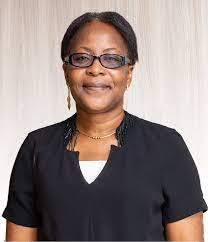
Hon. Eléonore YAYI LADEKAN is the Minister of Higher Education and Scientific Research of the Republic of Benin
Organic chemist and Full Professor at CAMES Universities. Previously, Vice-Rector in charge of international cooperation, partnerships, and professional integration at the University of Abomey-Calavi (2017-2019), Minister of Nursery and Primary Education (2015-2016); Technical advisor to the Minister of Crafts and Tourism (2007-2012), Director of the Center for University and Social Works at the University of Abomey-Calavi (2012 to 2015).
Under the leadership of President Patrice TALON and with his team, she implements reforms in terms of the quality of training, professional integration of young people and scientific research. At the regional level, she chaired the Council of Ministers of CAMES (2018-2020), and various institutions such as EAMAU and EISMV.
Ms. Shi CHEN, Academic VP, Guangzhou Technician College, China
Ms. Shi CHEN is the Academic Vice President of Guangzhou Technician College in China. With a wealth of experience in education, she is a dedicated leader committed to promoting technical education and vocational training. Ms. Chen holds a master’s degree in education and has a strong background in curriculum development and academic administration. She is known for her innovative approaches to teaching and learning, fostering a dynamic and inclusive educational environment. Ms. Chen’s leadership at Guangzhou Technician College has been instrumental in shaping the institution’s academic programs and ensuring students receive high-quality training to excel in their chosen fields.
Marilza Machado Gomes Regattieri, Professional Educational Specialist/ SENAI, Brazil
Marilza has a master’s degree in economics from the Federal University of Viçosa, Brazil, and has spent over 25 years working in education, primarily vocational and upper secondary education.
She has worked in institutions such as UNESCO/Brazil and the Department of Professional and Technological Education of the Brazilian Ministry of Education, where she held the position of Director of Policies and Regulation of Professional and Technological Education, as well as a University Professor.
She is currently a Professional and Technological Education Specialist at the National Department of the Brazilian National Service for Industrial Training (SENAI).
Dr. Michael Fung, Executive Director, Institute for the Future of Education, Mexico
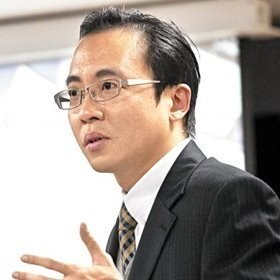
Dr. Michael Fung is the Executive Director of the Institute for the Future of Education (IFE) at Tecnologico de Monterrey (Tec), the leading private university in Latin America with 26 campuses in Mexico and 18 offices globally. The IFE aspires to generate, transfer, and disseminate applicable knowledge about educational innovation, connecting and seeking disruptive global solutions for the future of higher education and lifelong learning.
He was formerly the Deputy Chief Executive at Skills Future Singapore (SSG) and led the development of a comprehensive education and training ecosystem under the national Skills Future movement, which has become a global benchmark and reference for workforce skills development and lifelong learning across society.
Michael was an adjunct Senior Fellow at the Singapore University of Technology and Design and was a Senior Advisor to the Office of the President at the Hong Kong University of Science and Technology (HKUST). He formerly held the position of Director of Planning and Institutional Research at HKUST and provided leadership and support for the University’s strategic and academic planning, decision-making, resource allocation, and assessment of institutional effectiveness. He also led the University’s participation in international rankings and was an advisor to several leading international ranking bodies.
He was previously the Director of Strategic Planning and Quality Assurance at the Singapore Management University (SMU), a Deputy Director at the Singapore Ministry of Manpower (MOM) and held various senior positions at the Infocom Development Authority (IDA) and the National Computer Board (NCB) of Singapore.
He was the Founding President of the Higher Education Planning in Asia Association, and serves on a number of boards and committees, including the Carnegie Mellon University Admissions Council, the Hong Kong Council for Accreditation of Academic and Vocational Qualifications, and the Singapore Institute of Directors.
He is an alumnus of the University of Southern California and Carnegie Mellon University in the US, and Tsinghua University in China.
Session 5: Policy interventions and resource mobilization for sustainable TVET
Moderator: Katerina Ananiadou, UNESCO-Paris

Katerina Ananiadou is a Progamme Specialist at the Section of Youth, Literacy and Skills Development of UNESCO, working on issues related to Technical and Vocational Education and Training and skills development, in particular qualifications, credentials, learning pathways Prior to joining UNESCO Katerina worked for four years as a policy analyst at the Centre for Educational Research and Innovation (CERI) of the OECD and at the UCL Institute of Education, where she carried out research on adult literacy and numeracy and workplace learning. Her academic background is in Psychology and the Cognitive Sciences which she studied at Universities in Greece and the UK
Hon Ezekiel Machogu, Minister of Education, Kenya
Dr. Ezekiel Machogu was appointed Cabinet Secretary for Education in 2022. Before his appointment, the seasoned career civil servant and administrator, had served as Member of Parliament for Nyaribari Masaba Constituency between 2017 and 2022.
Since his appointment as the Cabinet Secretary for Education, Dr Machogu has led a successful turnaround of the fortunes of the hitherto stuttering implementation of the Competency Based Curriculum, a new system being rolled out in phases to replace the 8-4-4.
Dr Machogu is currently in charge of implementing sector-wide reforms recommended by a Presidential Working Party on Education Reforms that was formed by Kenyan President, Dr William Ruto, upon forming his Government in 2022.
Some of the key reforms that Dr Machogu is currently spearheading include the implementation of a new funding model for Technical and Vocational Education and Training institutions and Universities, drafting new laws to govern the basic and higher education sector, and the writing of a new Sessional Paper to anchor the new education system.
Dr Machogu is a graduate of the University of Nairobi where he studied Political Science (Government and Sociology).
Due to his outstanding contribution to the education sector, Hon Machogu was awarded an honorary doctorate degree of the Taita Taveta University in 2023.
Hon. Muferihat Kamil Ahmed, Minister of Labour and Skills, Ethiopia
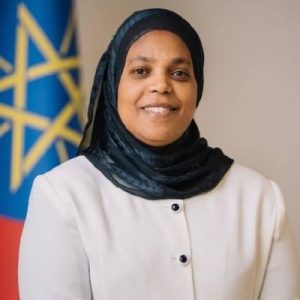
Ms. Doroba Hendrina Chalwe, Division Manager, Education, and Skills Development at the African Development Bank
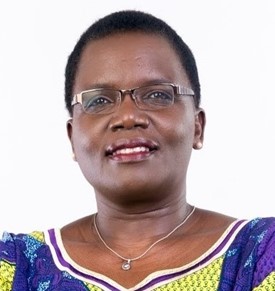
She is a development practitioner, educationalist, mathematician, gender expert, and Leadership coach with over 35 years of work experience in the development sector.
A teacher by profession, her passion remains towards empowering the youth- improving education and skills development opportunities and professional coaching. Promoting and strengthening linkages between tertiary Education and Human Capital and skills needs in local African industries.
Ms. Doroba is an alumnus of the National University of Ireland, Dublin, the University of Melbourne, Australia, and Nkrumah Teachers’ Training College in Kabwe, Zambia: a Synergos Senior Fellow, Global Women Leadership Network (GWLN) member, and Brave Thinking Institute.
2024 Nominee East Africa Women of Excellence Award “Education Advocate”
Eng. Paul Umukunzi, Director General for Rwanda TVET Board
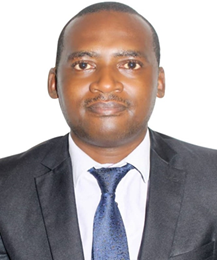
Paul Umukunzi is the Director General of Rwanda TVET Board since November 2020. He brings with him a huge experience in TVET management. Prior to his appointment as Director General, Eng. Paul Umukunzi served as Deputy Principal in charge of Academics and Trainings in 2 Polytechnics, IPRC Huye and IPRC Karongi, for 8 years. He is a graduate of the Technical University of Kaiserslautern, Germany, where he obtained a Master of Science in Civil Engineering.
Session 6: Investment in training equipment, digital infrastructure, industry partnerships and digital innovations in TVET
Moderator: Ms. Unami Dube, Senior Programme Officer –Institutional Development responsible for WorldSkills Africa Desk Coordination, Human Capital and Institutional Development Directorate, African Union Development Agency (AUDA-NEPAD)
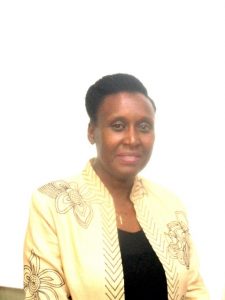
Ms Unami Dube, is a consummate development practitioner with a passion to empower and equip individuals and communities to thrive. Ms Dube has enjoyed a versatile and resourceful career spanning almost 25 years in the private sector and in the international development cooperation sectors, in agriculture policy development, strategy and leadership development for small to medium scale enterprises, and youth skills development.
She has been with the AUDA-NEPAD since 2013, managing a programme to build the leadership and management capabilities of senior policy makers in the agriculture sector; after which she transitioned to the Youth and Skills Employability Programme in 2017, to a coordination and leadership responsibility. She is passionate about ‘moving the needle’ on youth employability for the current cohort and the generations of youth to come through fostering close cooperation with partners and stakeholders. In her current role, it is her delight and pleasure to usher in the establishment of the Africa chapter of the WorldSkills movement on the continent. WorldSkills Africa aims to promote skills excellence and development as an integral part of achieving Africa’s economic growth. She also serves as the technical lead for the Skills Initiative for Africa Programme (SIFA) which is a EUR 100 000 Mio grant facility earmarked for the revamp of TVET institutions. She holds a Master in Strategic Quality Management (Portsmouth, UK) and a Master in Development Practice (Pretoria, South Africa).
Outside of work, she loves to write and sing gospel songs and through my platform ‘Growing African Leadership-GAL’ she facilitates inter-generational dialogue and exchange to develop the next generation of leaders.
Dr. Joseph Kanyi, Deputy Director State Department for TVET/ Kenya
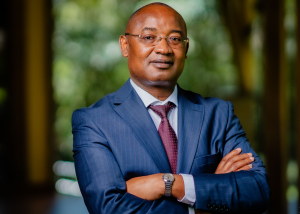
Dr. Xiaoyan Liang, Lead Education Specialist, World Bank
Dr. Xiaoyan Liang is a Lead Education Specialist at the World Bank. An alumna of Harvard University, she holds a Doctor of Education degree and has over two decades of expertise in international education policy and research, program development, and implementation. Her work spans early childhood education, teacher education, technical and vocational education and training (TVET) and skills development, and higher education science and technology, in East Asia, Sub-Saharan Africa, and Latin America.
Currently, Dr. Liang leads the World Bank’s education initiatives in Tanzania, including the BOOST Primary Student Learning (BOOST), Education and Skills for Productive Jobs (ESPJ), and the East Africa Transformation and Regional Integration Program (EASTRIP) across Ethiopia, Kenya, and Tanzania. She is the Africa regional focal person for TVET and skills and will co-lead the World Bank global work in this area later this year.
Dr. Liang plays a pivotal role in the China-Africa World Bank tripartite education partnership and has contributed as the lead author to several World Bank publications including “How Shanghai Does It” and “Developing Skills for Tanzanian Youth through Dynamic TVET.” Dr. Liang is passionate about South-to-South cooperation, academia-industry-government partnership, regional integration, and promoting Africa’s indigenous research to address local development challenges.
Prof. Sung Joon Paik, Panelist 3: Professor, Korea Development Institute School of Public Policy and Management, Korea
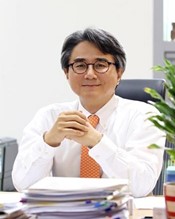
Mr. Sung Joon PAIK is a visiting professor at the Korea Development Institute School of Public Policy and Management (KDI School). Until 2021, he worked at the KDI School for 10 years as a professor. Before joining the KDI School, he worked at two government-funded research institutes – Korean Educational Development Institute (KEDI, 1991-1999) and Korea Research Institute for Vocational Education and Training (KRIVET, 1999-2011), where he conducted policy-oriented research projects on educational administration, finance and TVET. He also worked at the World Bank as a senior education specialist (a secondee from the KRIVET) between 2007 and 2009. With respect to TVET, for the last 10 years, he participated in several international consultancy projects including the Korean Government’s Knowledge Sharing Projects(KSP) on TVET for National Economic Development (Guatemala, Senegal, Rwanda, and Ethiopia), UNDP project on HRD(Ethiopia), World Bank projects on the Review of the Philippine Qualification Framework and the Digital Skills Development of Korea, KOICA’s evaluation studies on the ODA projects on TVET for Uzbekistan, Kyrgyzstan, and Iraq, and KDI School’s consultancy project for the Kurdistan Regional Government. Prof. Paik received a doctorate from the Harvard University (1990).
Gideon Murenga, TVET and Labour Market Advisor /Kenya-GIZ Youth Employment and Vocational Training Project
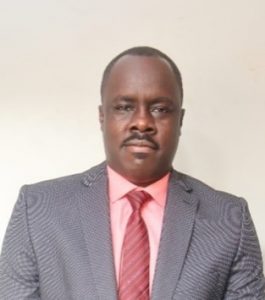
Gideon Murenga is a seasoned education and training professional with over 15 years of expertise in the Vocational Education and Training (TVET) sector. Currently serving as the Senior TVET and Labour Markets Advisor and the National TVET Coordinator for the Promotion of Youth Employment and TVET project at GIZ in Kenya, he plays a pivotal role in advancing vocational education, fostering youth employment, and linking TVET institutions with industry partners.
Gideon’s extensive experience encompasses various aspects of TVET, including implementation of Dual Vocational Education and Training (VET) systems, policy advise to government, private sector strengthening, and institutional capacity development.
Session 7: Presentation on Green Economy Future of Work
Prof Winston Oluwole “Wole” Soboyejo, President, SUNY Polytechnic Institute (SUNY Poly), USA

Dr. Winston Soboyejo’s research focuses on materials for health, energy and global development. He joined SUNY Poly from Worcester Polytechnic Institute (WPI) after serving as Interim President (2022-2023), Provost (2018-2022) and Dean of Engineering (2016-2018) at WPI. Dr. Soboyejo has also held faculty positions at Princeton University (1999-2016), MIT (1997-1998) and The Ohio State University (1992-1999). Notably, he served as President and Provost of the African University of Science and Technology (AUST) in Abuja, Nigeria, highlighting his commitment to African STEM outreach.
With over 400 peer-reviewed papers, Soboyejo was elected to the U.S. National Academy of Engineering in 2021. He is also a member of the World Academy of Science, the African Academy of Science, the Nigerian Academy of Science and the Nigerian Academy of Engineering. He has also served on the Scientific Advisory Board of the U.N. Secretary General (2014-2017).
A King’s College London graduate with a PhD from the University of Cambridge, Dr. Soboyejo’s illustrious career reflects his dedication to academic excellence, international collaboration, and advancing STEM fields, particularly within Africa.
Moderator: Ms Kalkidan Tadesse, World Bank – EASTRIP National Project Coordinator, Ethiopia
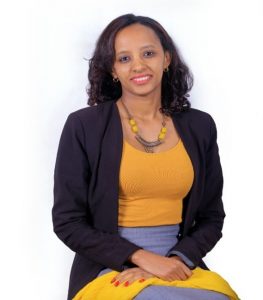
Ms. Kalkidan Tadesse is a dynamic professional serving as the National Project Coordinator for the World Bank project EASTRIP in Ethiopia. Her professional background focuses in specializing in Education, Public Finance, Project Management, Governance, and Audit. With a rich and diverse background, she brings extensive experience from various sectors including public, audit, pharmaceuticals, agriculture, logistics, and development.
Throughout her career, Ms. Tadesse has demonstrated a strong aptitude for leadership and lifelong learning, embodying a creative and entrepreneurial spirit in her endeavours. Her expertise spans finance, project management, and governance, making her a valuable asset in both regional and international contexts, particularly within the Africa Region.
With a proven track record of delivering results and driving positive change, Ms. Tadesse is poised to tackle the next challenge with enthusiasm and dedication. Her commitment to excellence and her passion for making a difference are evident in her work, making her a respected figure in her field and a trusted partner in collaborative ventures
Rapporteur: Dr Richard Kipyegon Koech, Rsif Alumnus
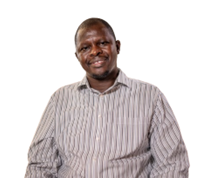
Dr. Richard Kipyegon Koech, a Kenyan national and esteemed Rsif alumnus, possesses a PhD in Material Science and Engineering from the African University of Science and Technology (AUST) in Abuja, Nigeria. Complementing this, he holds a Master of Science degree in Physics with a specialization in Renewable Energy from Moi University in Kenya. Currently serving as a lecturer of Physics within Moi University’s Department of Mathematics, Physics, and Computing, Dr. Koech brings a wealth of expertise and academic rigor to his role.
His doctoral research delved into investigating the impact of additives on the optoelectronic properties of Formamidinium-based perovskite solar cells. During his PhD journey, Dr. Koech had the privilege of conducting experimental research at Worcester Polytechnic Institute (WPI) through a sandwich program facilitated by PASET-Rsif, underscoring his commitment to international collaboration and interdisciplinary research. Now, as the lead researcher in a PASET-Rsif-funded project under the Junior Investigator Research Award (JIRA), he spearheads pioneering investigations into leveraging locally sourced plant-derived antioxidant compounds as additives in perovskite solar cells. His research team comprises experts with diverse backgrounds in physics, chemistry, and material science, reflecting Dr. Koech’s interdisciplinary approach to scientific inquiry.
Driven by a profound passion for addressing societal challenges through scientific innovation, Dr. Koech transitioned from his initial career as an educator to pursue advanced studies. His unwavering belief in the transformative power of science, technology, and youth empowerment is evident in his active involvement in community initiatives, including serving on the boards of various schools. Through these engagements, Dr. Koech mentors and inspires high school students to pursue careers in science and engineering, thereby contributing to the cultivation of future generations of STEM professionals.
Session 8: Break-out sessions to discuss green economy future of work based on Rsif thematic areas, bringing together PhD scholars, faculty, university representatives, international partners, industry, and other stakeholders.
8.1: Working Group 1: Food security and agribusiness
Moderator: Dr Timothy Njagi, Development Economist, Tegemeo Institute of Agricultural Policy and Development, Egerton University, Nakuru, Kenya
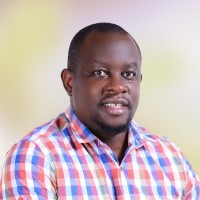
Tim Njagi is a Research Fellow at the Tegemeo Institute of Agricultural Policy and Development. Prior to joining the Institute, he gained experience in policy planning and implementation working as a Senior Economist at the National Treasury and Ministry of Planning, where he managed rural public sector projects and led in rural development planning. As a Research Fellow, he coordinates research projects, leads analytical pieces, fundraising for research and manages research grants. His current research focus is on agricultural transformation, value chain analysis, and investigating governance, policy and investment levers that can unlock transformation. He holds a PhD in Development Economics and master’s degree in international development from the National Graduate Institute for Policy Studies (GRIPS), Japan. He is a member of the International Association of Agricultural Economists (IAAE), African Association of Agricultural Economics (AAAE), African Evaluation Association (AfREA), African Growth and Development Policy (AGRODEP) Modeling Consortium, Evaluation Society of Kenya (ESK), and the Institute of Economic Affairs (EIA) in Kenya.
Speaker: Dr Yifru Tafesse Bekele, Head, State Capability, AGRA, Nairobi, Kenya
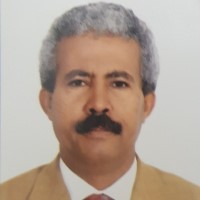
Before joining AGRA, as Head of State Capability in Nairobi, he was the Deputy Director General of the Ethiopian Agricultural Transformation Agency (ATA), Senior Director for Agricultural Commercialization Cluster, and Director for private sector at the same agency, responsible for leading the private sector in agriculture programs in Ethiopia, through working with potential investors and key stakeholders across the private and public sectors Previously Dr Tafesse also served as the Managing Partner and Chief Executive Officer of Adroit Consultancy and Training Services (ACTS) PLC, where he coordinated the National Cooperative Capacity Building Program in Tigray and Oromia regional states. He also previously served as the Director of Marketing at Ahadukes Food Products PLC, held senior positions in other companies including the NAS Foods PLC, Summit Beverages, Nyala Insurance SC and Ethiopian Management Institute. He has lectured at the Addis Ababa University School of Commerce as well as Mekelle University. Furthermore, he served as the Regional Coordinator for the Graduate School of Business Leadership at University of South Africa (UNISA) from 2009 to 2015.
He holds a PhD in Business Leadership from the University of South Africa; a Master of Business Administration (MBA) from Addis Ababa University; a Postgraduate Diploma in Marketing and Physical Distribution from Maastricht School of Management in the Netherlands; and a Bachelor of Arts in Management and Public Administration from Addis Ababa University.
Prof Irene Egyir, AHU Coordinator – University of Ghana
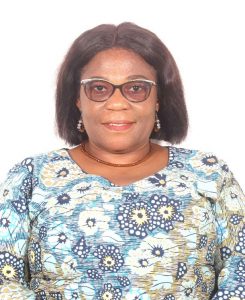
Irene Susana Egyir is an Associate Professor of Agricultural Economics and Agribusiness and the Dean, School of Agriculture, University of Ghana. She is the AHU Coordinator of the PASET-RSIF project in the University of Ghana. Since obtaining her PhD in 2003 Irene has worked with policymakers and development partner agencies to design policies that incentivize small-scale actors in the agricultural value chain. Irene has founded a development NGO named Multi-Features and Capacity Enhancing Services, which links urban micro-entrepreneurs to Research, Extension, Finance, Consulting, Cooperative and Media (REFCCOM) Services. Irene manages a three-acre mango farm and sells local brown rice, honey and cassava powder (kokonte) in her spare time.
Dr. Richard Edema, AHU Coordinator, Makerere University, Uganda
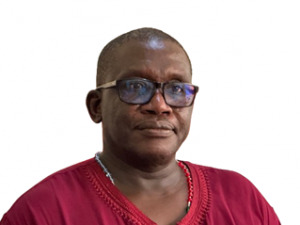
Positions and Honors
- Founding Director, Makerere University Regional Centre of Excellence for Crop Improvement (August 2017)
- Fellow of Ugandan National Academy of Sciences
- Executive Member of the Africa Plant Breeders Association (APBA)
- Distinguished International Alumni (2019) of The Ohio State University CFAES
- Member of the American Phytopathological Society
- Nominated to Maize Genetics Advocacy Committee (MGAC) of the Maize Genetics Cooperation (MGC) to Represent Africa
Dr. Richard Edema’s educational background is in Plant Pathology and Biotechnology. He did his BSc & MSc in Agriculture from Makerere University, and his PhD in Plant Pathology (specializing in Molecular Virology) at The Ohio State University (OSU). His PhD research was on the “Genetics of Virulence of the Maize Streak Mastrevirus (MSV)”, a very damaging virus of maize across in Africa.
I have 15 years of experience in academia – all of which have been at Makerere University. At Makerere University, I have taught various undergraduate and graduate courses; supervised over 50 graduate students to date. I have co-authored of over eighty (80) research articles (majority of which are in major international peer-reviewed journals). I have also been Principal Investigator on numerous research and training grants totaling USD 13 million to-date. I have led the development of Makerere University’s award winning Regional MSc program in plant breeding and seed systems that has been popular with various funding agencies. This program has trained over 150 mid-career scientists across African continent & has since developed into a model for regional capacity building in East Africa. This program has now upgraded into an African Centers of Excellence (ACE II project; one of 46 Centers created in selected Universities in Africa) with funding from the Government of Uganda through the World Bank. I have been recognized for my role as a mentor in the African Women in Agricultural Research and Development (AWARD) program; a program that has supported young women’s early career development in agricultural sciences.
Dr Sylvia Wairimu Maina, Rsif Alumna
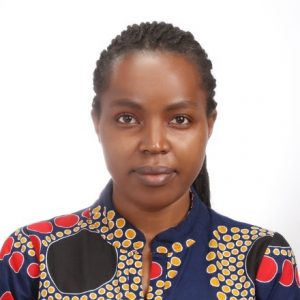
Sylvia is a Postdoctoral Scientist at Mt. Kenya University, Kenya also receiving training as an assistant lecturer. Her research interest focuses on innovative uses of sustainable natural resources to produce valuable products for food and human health.
She is a cohort 1 PASET-Rsif PhD alumnus in food security and Agribusiness, having studied at Sokoine University in Tanzania and the Korea Institute of Science and Technology. After completion of her PhD, Sylvia was awarded a JIRA grant as the principal investigator for a project on “Seaweeds innovations for sustainable products” to support her advance and unlock her research career.
8.2: Working Group 2: Climate Change
Moderator: Prof. El Hadji Bamba DIAW, Managing Director, 2iE, Burkina Faso
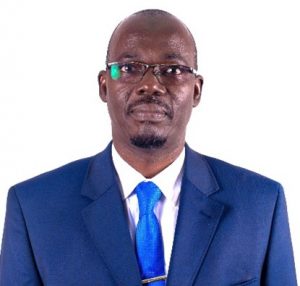
Professor El Hadji Bamba DIAW is an exceptional class full Professor, specialized in in Water sciences and techniques. He is currently holding the position of Managing Director, the International Institute for Water and Environmental Engineering (2iE). He holds a PhD in fluid mechanics coupled with a master’s degree in applied physical sciences, a Diplôme d’études supérieures spécialisées (DESS) in water resource mobilization, and an advanced Diploma in mechanics and engineering in the field of water sciences.
Professor El Hadji Bamba DIAW has over 25 years’ experience in higher education and research.
Previously, he was Special Advisor to the Director of the Thiés Polytechnic School (EPT) and EPT Focal Point for the Appropriation of International Standards for the structuring of engineering training for West Africa, ASICIAO). Prof. DIAW has also successfully held various positions including : Director of the Thiés Polytechnic School from 2012-2019, Head of Research Division at the University of Thiés, Director of the Water and environmental sciences and techniques laboratory among others.
In addition to numerous professional experiences, Prof. DIAW has authored several scientific publications and two books:
i). Hydraulique Générale, cours et exercices, 220 pages, published by Harmatan Sénégal in March 2020 and ;
ii). Hydrogéologie Appliquée : Comprendre et appliquer l’Hydrogéologie, cours et exercices-corrigés, 249 pages, published by Harmatan Sénégal.
Knight in the National Order of the Lion, Prof. DIAW is a member of several professional associations including the International Association of Hydrological Sciences.
Dr Gabriel Rugalema, Associate Director General, World Vegetable Centre (WorldVeg), Arusha, Tanzania
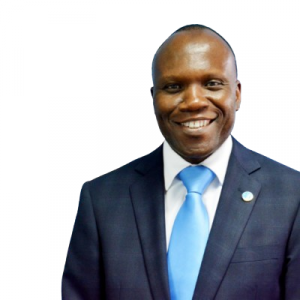
Dr. Rugalema has over 30 years of distringuished international career in agricultural development, humaniratian, academia and diplomatic fields. As the current Regional Director for the Southern and Eastern Africa Region at the World Vegetable Cenre, he is spearheading innovative vegetable research and development programs for 23 countries in the region. He has successfully led strategic planning processes and implementation of resultant strategies in and out of the Food and Agriculture Organization of the United Nations (FAO). He has served as head of strategy team at FAO headquarters as well as FAO Representative in Sierra Leone and Kenya as well as United Nations Resident Coordinator in Sierra Leone. Before joining FAO, he served in other UN agencies – UNAIDS in South Africa and UNESCO IIEP in Paris, France.
Dr. Tesfaye Lemma, Vice President for Research Affairs, Haramaya University, Ethiopia
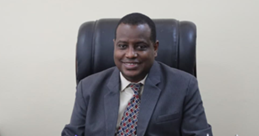
Dr. Lemma is the Vice President for Research Affairs and couples as the coordinator of the PASET Rsif program at Haramaya University. He holds a PhD in Rural Development from University of Pretoria, South Africa. He has held various teaching and leadership positions including the Founding President of the Ethiopian Society if Rural Development and Agricuture Extension, Director of the African Centre of Excellence fro Climate Smart Agriculture and Biodiversity Conservation (ACE SABC) and Director of Institutions, Innovation Systems and Economic Development Research among others. He has over 30 publications in vast topics on food systems and climate change.
Prof. Kone Daouda, Capacity Building Director, West African Science Service Centre on Climate Change, (WASCAL), at University Félix Houphouét -Boigny , Cote d’Ivoire
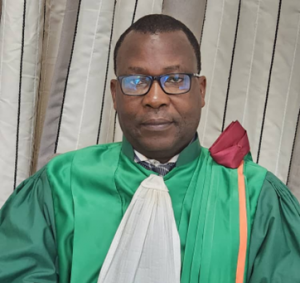
Professor Daouda Kone is the Director of WASCAL Capacity Building Department. As the head of the Capacity Building Department, he provides scientific and academic leadership and management of the different programmes. He also manages and coordinates the Capacity Building Programmes of WASCAL from the Headquarters by developing strategies to ensure effective achievement of the organization’s vision and scientific objectives.
Being a full Professor in Plant Physiology and Pathology, Professor Kone additionally, oversees the capacity needs assessments of the Graduate Schools and give direction for improvement as well as build a strong network among the lead universities in the region and the different stakeholders. He has 21 year teaching and research experiences at University Felix Houphouét-Boigny.
He played the leading role in the establishment in Côte d’Ivoire the Centre of Excellence of World Bank in Climate Change Biodiversity and Sustainable Agriculture in 2015. He also led the establishment of two regional Master programmes linked to the GRP WASCAL for Capacity Building in Climate Change in West Africa; 17 African nationalities are hosted in this programme.
Professor Kone also worked on ensuring the international accreditation of WASCAL PhD curricula and Three (3) others by High Council for the Evaluation of Research and Higher Education (HECERES). He acted as the lead connection of Université Félix Houphouët-Boigny and Côte d’Ivoire Universities to International Institution such as ICEPE through the PASET initiative, the Regional Universities Forum for Capacity Building in Agriculture, (RUFORUM) the Accelerating Impact of CGIAR Climate Research for Africa (AICCRA).
Professor Kone obtained his master’s in plant Physiology degree in 1991 and went on to pursue a first Doctoral Degree in Agro-physiology and Plant Pathology in 1998. He further went on to obtain a second Doctoral Degree in 2008 also in the same field from the University of Cocody-Abidjan in Côte d’Ivoire. He has supervised more than 30 PhD students from Cote d’Ivoire and other West African countries and published more that 200 articles in well reputable journals. For the benefit of Environmental Protection, up to 6 of his research outcome have ben patented by OAPI (African organization of Intellectual Property) and are being used by communities.
Dr. Murtala Badamasi, Centre for Dryland Agriculture, Bayero University, Kano, Nigeria
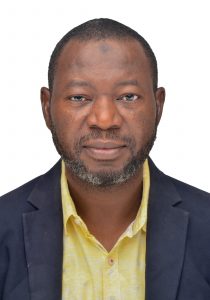
Dr. Badamasi is a lecturer and Coordinator of training at the Centre for Dryland Agriculture. He holds a PhD in Geography (Remote sensing and GIS application). He is also the Coordinator of Rsif program at Bayero University and holds other positions including, member of the Land Management Committee and vice chairman of Association of Nigerian Geographers Zone. He is widely published in the areas of soil science, agriculture and utilization of remote sensing to agriculture, forestry and vegetation.
8.3: Working Group 3 : Energy including renewables.
Eng. Peter Waweru Njenga, Chief Executive Officer and Managing Director, KenGen
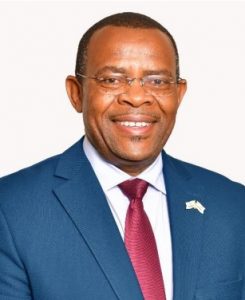
Eng. Peter Njenga is the Managing Director and CEO of Kenya Electricity Generating Company PLC (KenGen), East Africa’s foremost electricity generation company, distinguished by its impressive 86% reliance on renewable and clean energy sources. With a tenure that formally commenced on August 21,
2023, Eng. Njenga boasts an illustrious 32-year career in the energy sector, marked by exceptional leadership. He holds a Bachelor’s Degree in Electrical Engineering, complemented by an MBA in Strategic Management from the prestigious University of Nairobi. His status as a registered professional engineer adds to his credentials, standing as a paragon of expertise, augmented by a collection of certificates in senior leadership management, notably from Strathmore University and Harvard Business School, among other esteemed institutions.
Throughout his journey, Eng. Njenga has consistently showcased unwavering dedication to professionalism, excellence in service delivery, strategic acumen, and ethical stewardship, leaving an indelible imprint on industry growth and innovation. His remarkable ascent from Trainee Electrical Engineer to the esteemed position of General Manager of Infrastructure Development at Kenya Power & Lighting Company PLC (KPLC), to CEO of KenGen is a testament to his character, resilience, and visionary prowess.
Notably, his influential role as Chair in pivotal committees within the energy sector in Kenya underscores his resolute commitment to catalyzing transformative change, extending to the spheres of sustainability and climate action. Eng. Njenga seamlessly integrates his technical proficiencies with a results-oriented mindset, further reinforcing KenGen’s ongoing triumph in delivering sustainable and dependable energy solutions, while also championing initiatives like tree planting to combat climate change.
Beyond his professional pursuits, Eng. Njenga is a passionate advocate for youth development and family values, reflecting his devotion to both his Christian faith and family life. In his leisure time, he finds enjoyment in cycling and swimming, showcasing a well-rounded persona both in and out of the boardroom
Igor Wennd Kouni OUEDRAOGO, 2iE, Ouagadougou, Burkina Faso-Enseignant-chercheur
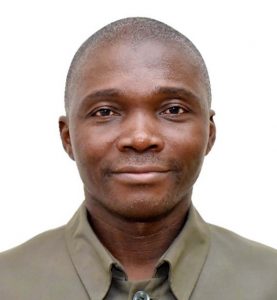
Wennd Kouni Igor OUEDRAOGO obtained his doctorate in Organic Chemistry at Joseph KI-ZERBO University, Ouagadougou (Burkina Faso) in 2010.
For more than 10 years, he has taught at the International Institute of Water and Environmental Engineering (2iE).
His scientific interest focuses on the energy recovery of biomass (agricultural and agri-food residues) and materials for catalysis applications (synthesis of biofuels).
Expert in bioenergy, He is co-author of several scientific publications and is currently a member of projects funded by the World Bank, the European Union, the Academy of Research and Higher Education (ARES).
Prof Francis Nyongesa/ Chair of the Department of Physics.
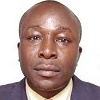
Prof. Francis Nyongesa Wanjala holds a PhD in Physics and he is currently serving as the academic Chair of the Department of Physics of the University of Nairobi. He obtained his PhD in Physics (UoN) in 2000. Prof. Francis Nyongesa is an accomplished scholar with proven track record in research and training as demonstrated by his publications in peer review journals and supervision and mentorship of postgraduate student. He has over 22 research publicationsin Material Science and Renewable Energyin refereed journals and over 15 oral presentations in international conferencesinthefollowing countries: UnitedStatesofAmerica(USA), Japan,Germany,Italy,China, South Africa, Ghana, Ethiopia,UgandaandTanzania.He has supervision and mentorship many postgraduate students. His research interest include: Functional Materials for Energy Efficient Systems, Solar Energy Materials (Perovskite Solar Cells, Dye Sensitized Solar Cells (DSSCs), and applications of Nanotechnology for Water Purification Systems.He is a recipient of the Third World Academy of Science (TWAS) Award for Young Scientist in 2007 for his contribution in scientific publications in Physics and several fellowships and research grants including:The PASET-RSIF Research Grants Award for PhD Program in 2020, the PASET-Rsif Capacity Building Grants Awardin 2020, the National Science, Technology & Innovation (ST&I) Research grant (NACOSTI)in 2012, the U.S-Africa Materials Institute (USAMI) visiting fellowship atPrinceton University (USA) in 2008 and the Abdus Salam Young Student Fellowship (Trieste, Italy) in 1999. He is among the founder members of the Global Young Scientists Academy (GYSA). He is a member of African Materials Research Society (AMRS) and the Ultrasonic Nondestructive Testing (NDT) Societyof Kenya among others. He has served on the editorial board of the African Journal of Physical Sciences (AJPS) and the Tanzania Journal of Science.
Prof. Sunday Sunday Ikiensimama
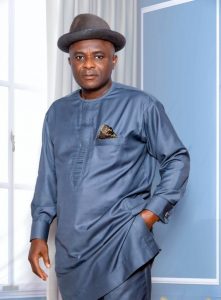
Is a full Professor of Petroleum & Gas Engineering. He is the Chair Occupant of the Shell JV-Aret Adams Professorial Chair in Petroleum Engineering, Director IPES, and Coordinator Partnership for Skills in Applied Sciences, Engineering and Technology (PASET), at the University of Port Harcourt, Nigeria. He has a Bachelor of Engineering Degree in Chemical Engineering, Masters’ Degrees both in Chemical and Petroleum Engineering from the University of Port Harcourt. He holds a Ph.D in Chemical Engineering majoring in Oil & Gas PVT Characterization from the University of Lagos, Nigeria.. He is a registered Engineer with the Council for the Regulation of Engineering in Nigeria (COREN), Registered Environmental Specialist with National Registry of Environmental Practitioners (NREP), USA. He is a Pressure, Volume and Temperature (PVT) Expert who has more than One Hundred and Twenty (120) peer reviewed articles in both National and International Journals as well as conferences and festschrifts; and some Books, reports and manuals to his credit.
He is an Erudite scholar and has researched widely in the following areas: Process Development & Optimization, Reservoir Engineering, Production Engineering, Petroleum Economics & Risk Management in Petroleum Ventures, Refining & Petrochemicals and Solution Development. He was Head of Department of Petroleum & Gas Engineering, University of Port Harcourt (2010 -2014). He was also the pioneer coordinator of the Post Graduate Diploma programme (PGD) at the Institute of Petroleum Studies (IPS) for Seven (7) years and helped to develop the existing Centres of Excellence in IPS relating to: Gas, Refining and Petrochemicals; Occupational Health, Safety and Environment (COHSE); Advance Research in Petroleum Engineering & Project Development, Offshore Technology Institute (OTI) and the World Bank African Centre of Excellence in Oilfield Chemicals Research (ACE-CEFOR), University of Port Harcourt, Nigeria. He is currently an Adjunct Professor at Kenyatta University (KU), Nairobi, Kenya and serves as a Thematic Lead for Petroleum Production Engineering in the Department of Gas and Petroleum Engineering, KU for the past five (5) years.
Prof. Julius Mwabora
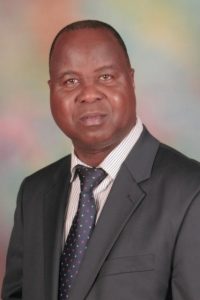
Earned a B.Sc. (Physics major) and M.Sc. in Physics from the University of Nairobi (UoN) in 1990 and 1993, respectively. He received his Ph.D. in Physics from the University of Dar es Salaam in 1999. He joined the Department of Physics at the UoN in 1992 as a Graduate Assistant, was promoted Tutorial Fellow in 1994, to Lecturer in 2000, to Senior Lecturer in 2003, to Associate Professor in 2009, and to Full Professor in 2014. He was Chairman, Department of Physics, UoN from 2013 to 2019. He has acted severally as Dean, School of Physical Sciences, UoN from 2014 -2019. Prof. Mwabora is currently the Partnership for skills in Applied Sciences, Engineering and Technology (PASET)-Regional Scholarships and Innovation Fund(RSIF) Coordinator, University of Nairobi since June 2020.
Prof. Mwabora’s stints as a visiting researcher at Graduate and Postdoctoral levels at the Institute of Energy Conversion, University of Delaware, USA under the Fulbright programme (1997-1998), Ångström Laboratory, Uppsala University, Sweden (2001 and 2002) under the International Science Programmes, and Heterogeneous Material System Section (SE2), Hahn-Meitner-Institute (Now Helmholtz Centre for Materials and Energy Berlin), Germany (2005 and 2009) under DAAD Fellowship exposed him to international collaboration and multidisplinary nature of materials science, solar cells research and Energy. His current research interests are Nanomaterials for Energy and Environment, Thin Films, Solar Energy Materials, and Energy.
Prof. Mwabora has many years of research, teaching experience and expert advice experience to government of Kenya. To date he has supervised Ten Ph.D. and Thirteen M.Sc. student theses to completion, published over fifty scientific articles in peer reviewed journals. As of March 2024, Google Scholar reports over 1670 citations to his work. He has given numerous invited talks and involved in Education, Science, Technology and Innovation policy issues.
Professor Mwabora is a Member of many professional bodies including Kenya National Academy of Sciences (Currently Fellow & Hon. Assistant Secretary, Chemical and Physical Sciences and Council Member), Physics Society of Kenya, European Physical Society, and Materials Science for Solar Energy Network for Eastern and Southern Africa, Kenya DAAD Scholars Association, UoN Alumni Association, Institute of Physics, Fulbright Alumni-Kenya Chapter, African Materials Science Society. Prof. Mwabora has served in several Board of Governors/Managenent/Directors as a member/Chairman with recent ones being a member, Board of Governors for Coast Institute of Technology (2020 to 2023) and Board of Directors, United Kenya Club (2016 -2023; Chairman- 2022 -2022).
8.4: Working Group 4: Artificial intelligence and data science
Prof. Kayihura Muganga Didas, Acting Vice Chancellor/University of Rwanda
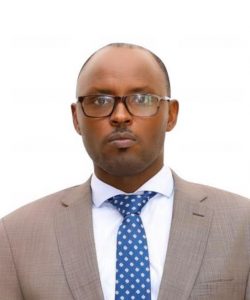
Assoc. Prof. Kayihura Muganga Didas is an experienced Practitioner of Law, an Associate Professor of Business Law and Manager with a demonstrated history of working in the research industry and academia, Arbitration and Public Speaking. Strong education professional with a Doctor of Philosophy (Ph.D.) focused on International Business/Trade/Commerce from Utrecht University. He has strong managerial skills both in academia and in practice of Law, but also on-Board membership. He is a Certified trainer in Mediation, Arbitration, Negotiation and Legal practice, and has also a strong experience in Business transactions.
Dr. Charity Wayua, Director, IBM Research Africa
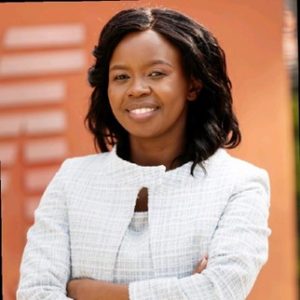
Dr. Charity Wayua is the Director of IBM Research Africa labs located in Kenya and South Africa; whose mission is to develop what’s next in computing. As Director, Charity is responsible for fostering the local innovation ecosystem and building partnerships with government, industry academia and start-ups and identifying, attracting, and managing top talent and generally strategy and technical execution.
Today her teams are leveraging artificial intelligence, quantum computing and hybrid cloud in areas such as climate and sustainability and healthcare etc.Before this role, Charity played multiple technical roles leading teams developing technology solutions in agriculture, public sector, financial services, and education resulting in solutions that have transformed businesses and government and impacted people’s lives.
She has received several awards and recognition including Kenya’s top 40 women under 40, a head of state commendation in Kenya, IBM’s Outstanding Technical Achievement Award and Best of IBM (awarded to top 0.25% IBMers annually) among others.
She obtained her undergraduate degree from Xavier University, (Ohio, US) and a PhD in Chemistry at Purdue University (West Lafayette, Indiana, US) where her research was focused on developing targeted therapeutics and imaging agents for lung, pancreatic and colon cancers.
She is passionate about leveraging science and technology to address Africa’s grand challenges and is a strong advocate for bringing science, innovation and data at the intersection of policy, development and business.
Dr. Damien Hanyurwimfura
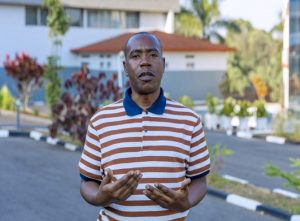
Dr. Damien Hanyurwimfura is currently the Associate Professor and Acting Director of the African Center of Excellence in Internet of Things (ACEIoT), College of Science and Technology, University of Rwanda. He holds a Bsc. in Computer Engineering and IT.
He obtained his Msc. of Engineering and Ph.D. degree in Computer Science and Technology from Hunan University, China in 2010 and 2015 respectively. He has secured about 11 research project grants at national and regional level as a PI or Co-PI in the field of Internet of Things and Artificial intelligence. His research interests cover most aspect of Artificial Intelligence and Internet of Things.
Pr Ezin C. Eugène
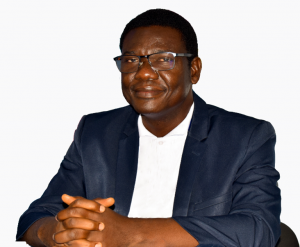
Ezin C. Eugène is a Professor in Computer Science and Artificial Intelligence and an IEEE member in Computer Science Society. His research work focuses on artificial intelligence, signal and image processing, cryptography, blockchain, machine and deep learning, natural language processing, big data, e-learning. He supervised more than 10 theses and published over 120 publications in journals, chapters of books, and proceedings of international conferences. As recognition, he is a Knight of International Order of Academic Palms 2021, Director of the Best Institute in Computer Science 2022 in Benin. He is the Founder of the Women in Computer Science Community at the Training and Research Institute in Computer Science of the Abomey-Calavi University.
Pr. Maïssa Mbaye
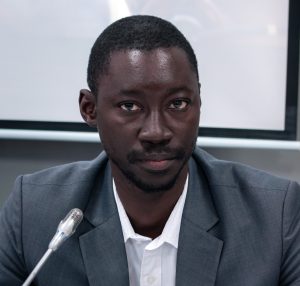
Prof. Maïssa Mbaye has been Lecturer at Gaston Berger University (UGB) in St-Louis since 2011, where he teaches computer science (undergraduate and Masters). He holds, among other things, a doctorate in Computer Science from the University of Bordeaux 1 in the Bordeaux Computer Science Research Laboratory (LaBRI) in 2009. At LANI (Digital Analysis and Computer Science Laboratory) of the UGB , his main research topics include autonomous networks, Knowledge Plane, Network Security, distributed and collaborative machine learning and reasoning for intelligent network management. He also works on the design of ICT4D methods and tools, notably intelligent IoT for the development sectors of agriculture, health, environment, etc. Maissa Mbaye is the current coordinator of the African center of excellence in Mathematics, Computer Science and ICT (https://www.ceamitic.sn/) of the ACE-IMPACT project of the World Bank and the AAU (Association of African Universities) . He is also the leader of the network of African Centers of Excellence in Digital Sciences and Technologies (DSTN) (https://ace-partner.org/dstn/). He is also the PASET RSIF Focal point at UGB Since 2017.
Dr. Emmanuel Effah
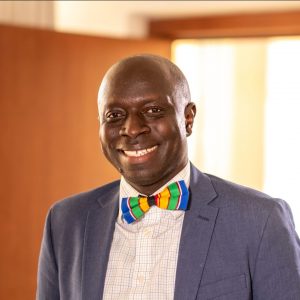
He holds a Ph.D. in Computer Science in the field of IoT. He is currently a Senior Lecturer at the Department of Computer Science and Engineering, UMaT, Ghana. His research interests include wireless sensor networks (WSNs), Agricultural-Internet-of-Things (Agri-IoT), IoT, smart systems design technology, and Artificial Intelligence. He has authored many research papers published in reputable journals and conference proceedings and has participated in several international research projects.
Currently, Emmanuel is the principal investigator (PI) of the World Bank-RSIF/JIRA-funded Agri-IoT Tech Project (Grant Ref No.: RSIF/JIRA/004) and the Senior Personnel of the NSF-funded DISES Project (Award Number (FAIN): 2307870).
8.5: Working Group 5: Mining, Minerals & Material Science
Prof. Azikiwe Peter Onwualu, Ag, President, AUST
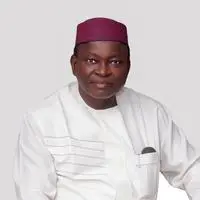
Engr. Prof. Azikiwe Peter Onwualu obtained the B.Eng. degree in Agricultural Engineering with first class honours in 1982 from the University of Nigeria, Nsukka (UNN). He later obtained M.Eng., degree in the same field and discipline in 1986. The PhD degree was obtained from the Technical University of Nova Scotia, Halifax, Canada in 1991. He joined the services of University of Nigeria, Nsukka as a Graduate Assistant in 1983 and rose through the ranks to Professor in1999. Over the years, he has worked in the areas of: agricultural power and machinery, agroprocessing machinery, biomass engineering and processing of industrial raw materials, and Science, Technology and Innovation policy.
He was Head, Agricultural Engineering Department, University of Nigeria, Nsukka (2000-2003), Director, Engineering Infrastructure, National Agency for Science and Engineering Infrastructure, NASENI, Abuja (2003-2005), Director General/CEO, Raw Materials Research and Development Council (RMRDC), Abuja (2005-2013) and Visiting Professor, National Universities Commission (NUC), Abuja (2014-2015). He was: Coordinator, Science Technology and Innovation (STI) thematic group of Vision 20-2020, Chairman, Committee of Directors of Research Institutes of Nigeria (CODRI) (2010-2013) and member National Research Fund (NRF), Committee of Tertiary Education Trust Fund, (TETFund 2019-2022). At the African University of Science and
Technology (AUST), he was: Head, Materials Science and Engineering Programme; Director, Academic Planning; Centre leader, Pan African Materials Institute (PAMI), African Centre of Excellence in Materials; Focal Point, Partnership for skills in Applied Sciences, Engineering and Technology (PASET) and Team Lead, AUST-PASET project “From Research to Markets: strengthening the innovation capacity of AUSTInspire)”.He is currently the Acting President of African University of Science and Technology, Abuja, member, Board of Directors of African Technology Policy Studies (ATPS) network, Nairobi, and Chairman, Technical Board of Engineering Materials Development Institute (EMDI) Akure.
Professor Onwualu has received many awards including: Presidential merit award, Nigerian Society of Engineers (NSE), Individual Honours Award, Nigeria Society of Engineers, Abuja branch; Award of Excellence by Nigeria Institute of Physics, Most Distinguished Agricultural Engineer of the Year by Nigerian Institution of Agricultural Engineers. He is a Fellow of 12 professional bodies, including: Nigerian Institution of Agricultural Engineers; Polymer Institute of Nigeria, Materials Science and Technology Society of Nigeria, Solar Energy Society of Nigeria, Agricultural Society of Nigeria, Nigerian Society of Engineers, Nigerian Institute of Management, Nigeria Academy of Science and currently the 12th President, Nigeria Academy of Engineering (2022 – 2024).
Prof Josephat Zimba, Country Manager, Karo Mining Holdings
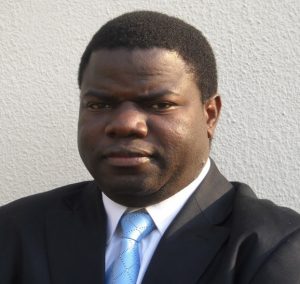
Josephat has more than 20 years’ experience in the field of Metallurgical Engineering covering both Materials Engineering and Extractive Metallurgy. He is also a consummate Scientist and has held various Visiting Scientist appointments at Princeton University (Department of Mechanical and Aerospace Engineering and the Princeton Institute for the Science and Technology of Complex Materials), Rutgers University (Chemistry Department) and the National Renewable Energy Laboratory (Solar Technology) among other institutions.
Josephat has been with the Tharisa Group for more than 13 years and has served in various capacities. He is currently the Country Manager for Zimbabwe and has been involved with the Karo project since its inception. Josephat is a Fellow of the Zimbabwe Academy of Sciences and a Past President of the Africa Materials Research Society (AMRS). He is a Board Member of the Africa MRS and a past Senate member of the International Union of Materials Research Societies (IUMRS).
Dr. Mwemezi J. Rwiza, Senior Lecturer: School of Materials, Energy, Water, and Environmental Sciences, (MEWES)
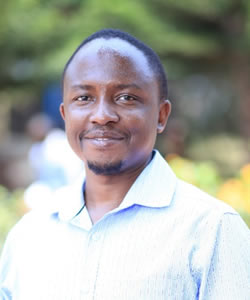
Dr. Rwiza holds a Ph.D. in Earth Sciences and Environmental Engineering from the Gwangju Institute of Science and Technology (GIST), South Korea. He also holds a master’s degree in environmental studies and Sustainability Science from Lund University, Sweden. He studied at the Sokoine University of Agriculture, Tanzania, for his bachelor’s degree in wildlife management. He works as Senior Lecturer at the Nelson Mandela African Institution of Science and Technology (NM-AIST), in Arusha, Tanzania. Dr. Rwiza is part of the global Knowledge for Change (K4C) consortium under the UNESCO Chair in Community Based Research and Social Responsibility in Higher Education where he serves as a certified mentor in Community-based Participatory Research. He is an Editorial Advisory Board member of the African Journal of Engineering and Environmental Research. Dr. Rwiza also serves as an African Host University coordinator in the Partnership for skills in Applied Sciences, Engineering and Technology – Regional Scholarship Innovation Fund (PASET-RSIF), an African Governments-led initiative to strengthen Science, Technology and Engineering capability in sub-Saharan Africa. He was a Co-Principal Investigator and Programme Coordinator in the just-ended Queen Elizabeth Scholarship-Advanced Scholars Program (QES) that was implemented by Carleton University (Ottawa, Canada) in partnership with Mzuzu University (Mzuzu, Malawi), Nelson Mandela African Institute for Science and Technology (Arusha, Tanzania), and the University of Ghana (Accra, Ghana). He has authored and co-authored multiple scientific contributions in international peer-reviewed journals. His published work can be found and downloaded from his Google Scholar account, and his ORCID site.
Dr Vitalis Anye
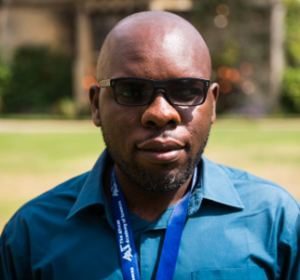
Dr Vitalis holds a BSc (Hons) in Physics from the University of Buea, Buea, Cameroon (2004), an MSc (2011) and a PhD (2015) in Materials Science and Engineering from African University of Science and Technology (AUST), Abuja, Nigeria. He has grown in his career in teaching and research in the field of energy materials to the position of Lecturer I at the Faculty of Engineering in Nile University of Nigeria, Abuja, Nigeria. In this faculty, he currently teaches courses and supervises both undergraduate and postgraduate students in the departments of Civil Engineering and Electrical-Electronics Engineering. He was a World Bank-Step B/ African Development Bank (AfDB) and African Capacity Building Foundation (ACBF) scholar at AUST from 2010 to 2015.
Dr Walter Njoroge, Senior Lecturer Physics Department, Kenyatta University
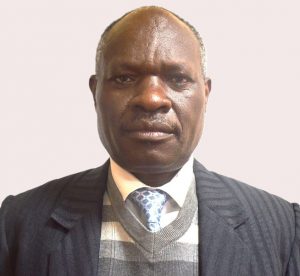
Dr. Walter Njoroge is a renowned academic and researcher at Kenyatta University in Nairobi-Kenya. He holds a Ph.D. in natural sciences from Aachen University of Technology, Germany. He also holds a master’s degree in condensed matter physics and a Bachelor of Education Science (physics major) both from Kenyatta University.
Dr. Njoroge is a senior lecturer in the department of physics at Kenyatta University. His main area of specialization is material science. Apart from teaching physics and supervision of postgraduate students, he has served the University in various administrative capacities since 1995. Currently, he is Kenyatta University coordinator for the Regional Scholarship Innovation Fund (RSIF), an initiative of Partnership for skills in Applied Sciences, Engineering and Technology (PASET).
Dr. Njoroge has published numerous articles in reputable journals and has presented his research at international conferences, contributing significantly in the area of novel materials (nano-scale) for various technological applications; nanotechnology, phase change memories, photovoltaics and smart coatings.
As a respected faculty member at Kenyatta University, Dr. Njoroge is passionate about mentoring the next generation of material scientists and inspiring them to make a positive impact on the world.
Dr. Ruth Moirana
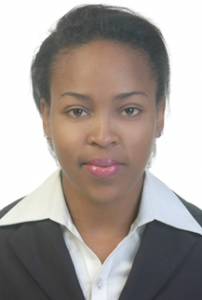
Dr. Ruth Moirana is a lecturer at the Nelson Mandela African Institution of Science and Technology (NM-AIST), Tanzania and specifically works in the school of Materials, Energy, Water and Environment Science (MEWES). She obtained her bachelor’s degree in environmental science from Sokoine University of Agriculture (SUA), Tanzania and then went on to complete her master’s degree in environmental science and engineering at the Harbin Institute of Science and Technology (HIT), China. She recently obtained her Ph.D. in Materials Science and Engineering, with a research focus on remediation of contaminated soils using materials synthesized from locally available sources.
Side Meeting: Special Session with Rsif AHU Vice Chancellors and Coordinators on Duty of Care and Safeguards for University Faculty and Scholars on 25 April starting at 8 am to 9 am.
Dr George Njenga, Executive Dean, Strathmore Business School, Kenya
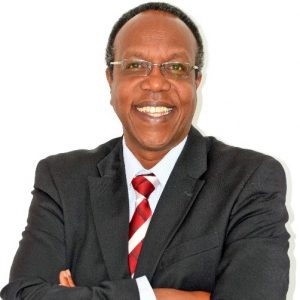
Dr. George N. Njenga is the Founding Executive Dean of Strathmore University Business School (SBS); Director of Strathmore Research and Consultancy Company; Chairman of B-Sea Consulting; Founder of Ongoza Youth Organisation: Chairman of Origen Group EPZ; and a seasoned leadership and Governance Senior Lecturer for over 20 years.
He holds a Ph.D (hons.) in Political Philosophy from the University of Navarra, a Master’s in Governance and Culture of Institutions (MGCI) from the same University, a Master’s in Business Administration from the United States International University (USIU) and is a Certified Public Accountant of Kenya.
He spearheaded the establishment of the Strathmore Institute of Healthcare Management and the Strathmore Institute of Public Policy and Governance at Strathmore University. He was also in the team that set up a successful School of Finance and Banking in Kigali, Rwanda. He worked as a senior auditor at Ernst and Young, Kenya, a global leader in assurance, tax, transactions and advisory services.
Session 9: Higher Education and Research Contribution to Africa’s Green Economy Future of Work
Moderator: Dr Rachida Mamade/ Director, Ministry of Science, Technology & Higher Education, Mozambique
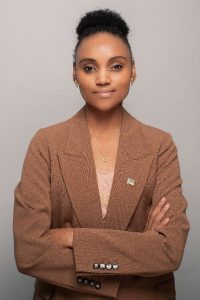
is a Mozambican accomplished Public Servant with 14 years of experience, holding a bachelor’s degree in international relations and diplomacy, and a master’s degree in public policy and governance. Throughout her career, she has made significant contributions to science, technology, higher and technical education in Mozambique. Currently serving as the Deputy National Director of Statistical Planning and Cooperation at the Ministry of Science, Technology, and Higher Education, she leads international cooperation initiatives and strategic projects to mobilize funds for the CTES sector. In addition to her government role, she is an independent consultant, having designed the Political Dialogue Project for socio-economic transformation in northern Mozambique through Youth Hubs, with funding from the High Commission of the Kingdom and technical support from Swedish Cooperation. Rachida also led the Mozambican team in reviewing the Renaissance Charter Cultural Africa for the African Union. She serves on the United Nations Adhoc Committee for drafting the International Convention against the use of ICTs for criminal purposes. Additionally, she holds positions as an Administrator of the National Professional Education Authority of Mozambique-ANEP and as a Member of the University Council of Rovuma University. Rachida is driven by her passion for scientific diplomacy and cyberdiplomacy, alongside her belief in the importance of women’s empowerment for sustainable development, advocating for their leadership and participation in the science, technology, and innovation agenda.
Rapporteur: Dr Humphrey Andalo Mabwi, Rsif Alumnus
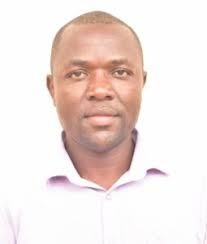
Dr. Mabwi Humphrey is a distinguished scholar who pursued his PhD studies at Sokoine University of Agriculture, supported by funding from PASET-Rsif. As part of his academic journey, he participated in a sandwich program at the prestigious Korea Institute of Science and Technology. During this time, Dr. Mabwi focused his research on functional foods, particularly investigating novel prebiotics for their efficacy against gut inflammation diseases.
Under the guidance Azikiwe Peter Onwualu of Prof. Erick V. G Komba from Sokoine University of Agriculture and Prof. Pan Cheol Ho from the Korea Institute of Science and Technology, Dr. Mabwi successfully completed his PhD last year. His groundbreaking research efforts culminated in the publication of four research articles, showcasing his commitment to advancing knowledge in his field.
Dr. Mabwi’s academic achievements are underscored by his educational background, which includes a Bachelor of Science in Biological/Chemistry Education from Masinde Muliro University of Science and Technology, Kenya, a Master of Science in Molecular Biology & Biochemistry from Northeast Normal University, China, and a PhD from Sokoine University in Tanzania. Prior to his doctoral studies, he began his career as a secondary school teacher in Kenya, later transitioning to a teaching and research assistant role at Masinde Muliro University of Science and Technology. Currently, Dr. Mabwi serves as an adjunct lecturer at the same institution, where he continues to contribute to the academic community through his teaching and research endeavors.
Joseph Murabula, Executive Chief Officer, Kenya Climate Innovation Centre (KCIC)
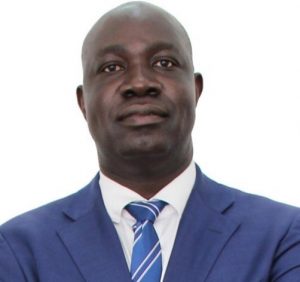
Joseph Murabula is the Chief Executive of Kenya Climate Innovation (KCIC). Joseph has more than 20 years of project finance, corporate finance, investment advisory, and fundraising experience, much of which has been within climate change and innovation contexts, Joseph brings a unique set of skills, perspectives, and relationships to lead KCIC into the future.
Prior to joining KCIC, Joseph was the Chief Executive Officer of the Kenya Innovative Finance Facility for Water (KIFFWA), an organization that co-develops water initiatives that promote the fight against climate change. Prior to KIFFWA Joseph worked with, the Equity Investment Bank, East African Development Bank (EADB), Trade and Development Bank (formerly PTA Bank), and the consulting division of Deloitte.
Joseph holds a master’s degree in finance and financial law from the University of London in the UK and is a Certified Expert in Climate and Renewable Energy Finance, Certified Public Secretary (CPS), a Certified Public Accountant, and a member of the Institute of Certified Public Accountants of Kenya (ICPAK).
Prof Izael da Silva, Deputy Vice Chancellor, Research & Innovation, Strathmore University, Kenya
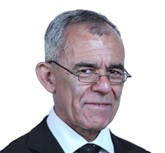
Professor Izael Pereira da Silva is a renewable energy specialist with over 20 years of experience in research and academic leadership. He is a Professor and Deputy Vice-Chancellor for Research and Innovation at Strathmore University where he also spearheads the UNESCO/UNITWIN chair on climate change resilience and sustainability.
He holds a Ph.D. and a Master of Science (MSc) in Electrical Engineering, with a specialization in Power Systems, from the University of Sao Paulo, as well as a Bachelor of Science (BSc) in Electrical Engineering, with a specialisation in Power Systems and Telecommunications, from the Federal University of Parana.
A qualified engineer, he is a member of several engineering societies within and outside Africa such as the Council of Engineers in Energy Transition (CEET). He is also an Accredited Energy Auditor with Kenya’s Energy and Petroleum Regulatory Authority (EPRA), and a Certified Energy Manager with the Association of Energy Engineers (AEE), based in Atlanta, Georgia. Over the years, he has worked with government ministries, development agencies (like GIZ, Sida, the World Bank, etc) and industry stakeholders (within and outside Africa) in research and research-related projects, to deepen the linkage between industry and academia.
His research interests are renewable energy, the Sustainable Development Goals (SDGs), energy efficiency, climate change mitigation and adaptation, demand-side management, energy conversion, energy utilisation and conservation, renewable energy technologies, and renewable energy policies. He has written and published extensively in these areas.
Outside work, he is a long-distance runner and fitness enthusiast, having participated in the Standard Chartered Nairobi marathon from 2011 to 2017 and the Ndakaini Half marathon in 2016. He also enjoys hiking. So far, he has climbed Mt. Kilimanjaro and Mt. Kenya.
Session 10: Conclusions and Next Steps
Hon. Claudette IRERE, Minister of State for Education, Rwanda

Hon. Claudette IRERE was appointed Minister of State for Education in August 2023. Prior to her current position, she served as Minister of State in charge of Technical and Vocational Education and Training (TVET) and ICT integration in teaching and learning since February 2020. She also served as Permanent Secretary in the Ministry of ICT and Innovation.
Hon. IRERE, who co-founded FabLab Rwanda and served as its general manager, previously served as project manager at the Private Sector Federation (PSF), ICT Chamber, General-Manager at kLab and CR Manager at Rwanda Online (Current Irembo Ltd). Hon. Claudette IRERE acquired her master’s degree in computer engineering from Oklahoma Christian University in 2013 a year after graduating from the former National University of Rwanda with a bachelor’s in computer science in 2012.
Hon Ezekiel Machogu, Minister of Education, Kenya
Dr. Ezekiel Machogu was appointed Cabinet Secretary for Education in 2022. Before his appointment, the seasoned career civil servant and administrator, had served as Member of Parliament for Nyaribari Masaba Constituency between 2017 and 2022.
Since his appointment as the Cabinet Secretary for Education, Dr Machogu has led a successful turnaround of the fortunes of the hitherto stuttering implementation of the Competency Based Curriculum, a new system being rolled out in phases to replace the 8-4-4.
Dr Machogu is currently in charge of implementing sector-wide reforms recommended by a Presidential Working Party on Education Reforms that was formed by Kenyan President, Dr William Ruto, upon forming his Government in 2022.
Some of the key reforms that Dr Machogu is currently spearheading include the implementation of a new funding model for Technical and Vocational Education and Training institutions and Universities, drafting new laws to govern the basic and higher education sector, and the writing of a new Sessional Paper to anchor the new education system.
Dr Machogu is a graduate of the University of Nairobi where he studied Political Science (Government and Sociology).
Due to his outstanding contribution to the education sector, Hon Machogu was awarded an honorary doctorate degree of the Taita Taveta University in 2023.

